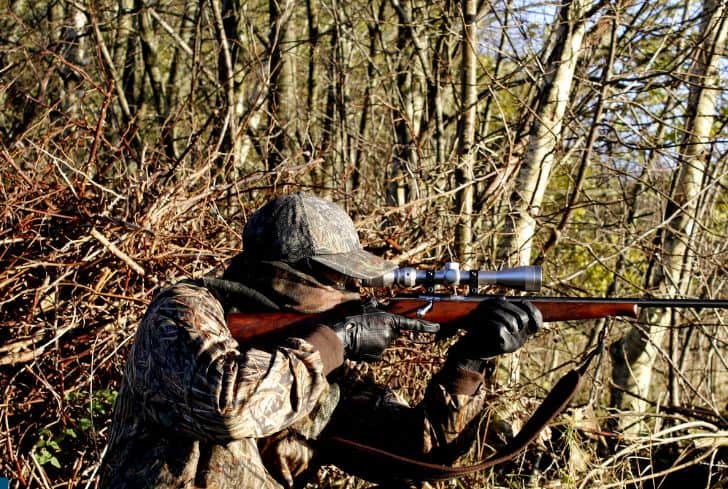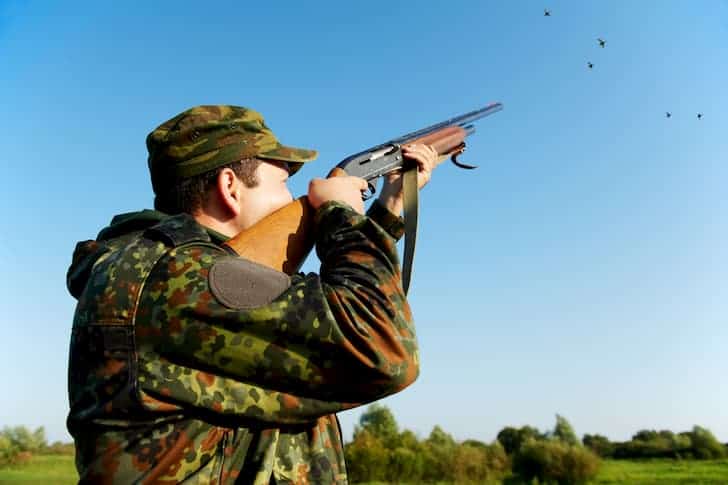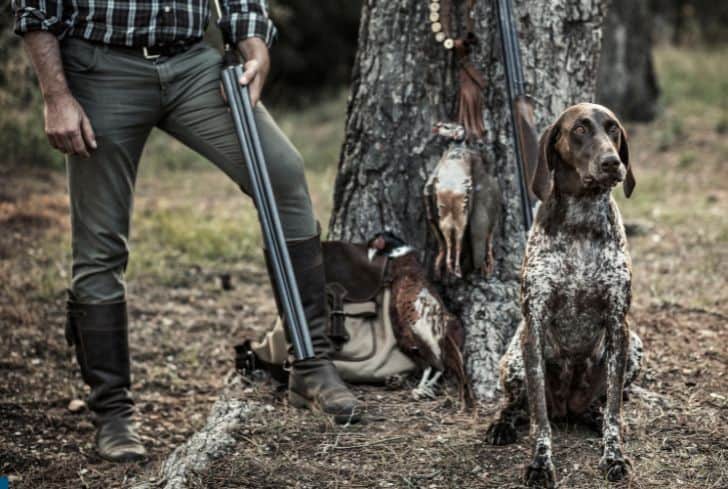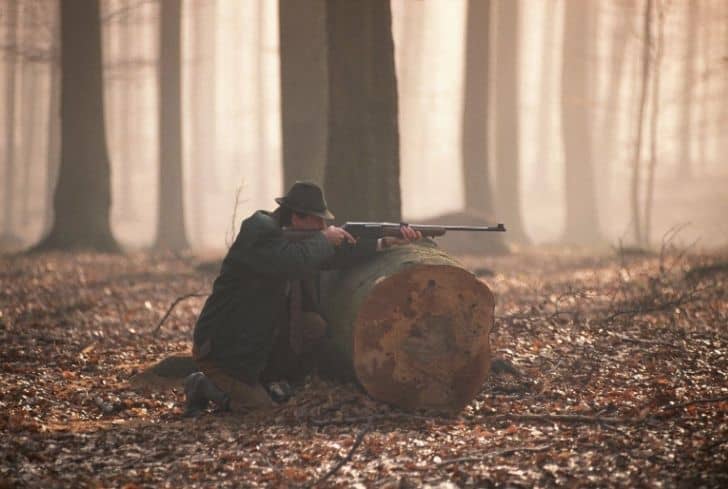Overhunting is an activity that results in a serious reduction of a species’ population or harm to wildlife. It is defined as the relentless chase for wild or game animals to kill or catch them for economic reasons, personal gains, or food.
In several parts of the world, people continue to depend on wildlife for many needs, and the act of killing, capturing, or hunting down more animals than their populations can supply contributes to overhunting.
In simple terms, overhunting could easily be called overexploitation of natural resources. It is a crime against the environment that should be stopped without further delay.
You see, overhunting isn’t just a threat to the survival of wildlife alone but also to the thriving of all life forms on the planet and the planet itself as a whole.
I ask people why they have deer heads on their walls. They always say it’s because it’s such a beautiful animal. There you go. I think my mother is attractive, but I have photographs of her.
~ Ellen DeGeneres
With the population continuously increasing, the pressure to hunt for survival has grown exponentially over the years. In fact, even if recreational hunting were to cease, excessive hunting driven by our demands remains prevalent and thriving.
Now, overhunting has caused so much harm to nature, right from species endangerment to extinction, that it must be controlled by all means.
Encyclopedia.com defines overhunting as
“Overhunting is any hunting activity that has an adverse impact on the total continuing population of a species. With the tremendous increase in the human population since the industrial revolution, there has been an ever-increasing use and, often, exploitation of many of the world’s natural resources.”
Overhunting is as real and scary as it truly sounds.
Because of the interconnectedness of the ecosystem, the long-term effect of taking these species from their natural environments is devastating as it threatens their survival and the survival of other species.
Let’s have a close look at the specific causes of overhunting, its consequences, and solutions to the problem.

Various Causes of Overhunting
Some of the reasons overhunting remains a big issue in the current day world include:
1. Overpopulation
The human populations worldwide have significantly increased, leading to a high number of people encroaching into wild areas that have extensively resulted in poaching and mass hunting.
The increased number of people has also contributed to high demands for food and other raw materials only obtainable from wildlife, contributing to more deliberate and continuous hunting activities that contribute to overhunting.
2. Cosmetic Products
Most of our cosmetics are made from several animal products. While most of us do not pay enough attention to this fact, as long as we get the products in our hands, this fact is a major contributing factor that feeds the process of overhunting to a great extent.
With the population increase, it is natural that the demand for such products will also increase manifolds. If the demand and the supply are not properly balanced, the impending extinction of wildlife will occur sooner than expected.
3. Overhunting for Food
Since time immemorial, humans always hunted for food. Furthermore, some of the earliest archaeological and cave paintings reveal the dependence of prehistoric men on hunting for food.
To date, men still hunt for food, and with the ever-increasing human population and environmental needs, people continue to engage even more in the activity, leading to overhunting.
The continued growth of the human population means the need for more and more food, making it difficult for some species to regenerate. What makes the matter worse is that it’s now done by big businesses that engage in the activity on a very expansive scale.
4. Growing Demand for Animal Meat
Believe it or not, the luxurious restaurants offering the most exotic and extravagant of menus are the ones that contribute the most to the process of overhunting. The rising demand for shellfish and meats from several animals, such as crocodiles, usually leads to overhunting.
In recent years, the food industry has become one of the major causes of overhunting. As such, overhunting basically cannot be stopped until we stop being allured by exotic meats and animal products for our meals.
Years ago, hunting for food was absolutely essential for the purpose of survival, but in recent times, it has become more of a luxury.
5. Tradition and Culture
Tribes and indigenous people hunted and killed wild animals to observe tradition and culture and for various beliefs. Sadly, even with the evolutions in our societies, some communities and tribes still hold the hunting practice dearly.
For instance, some ethnic groups living next to the ocean hunt turtles and use them to make soup, which is believed to make them stronger.
As a result, some turtle species are on the verge of extinction in Vietnam because of this superstitious practice. In Africa, the Maasai tribe hunts lions as a rite of passage to gain recognition for their bravery.
Various ethnic groups across the world are also involved in such practices by killing orangutans, gibbons, monkeys, and whales on the basis of different traditional and religious beliefs.
Collectively, these practices have resulted in overhunting and the endangerment of species.

For instance, whale and orangutan hunting in Japan and Borneo, respectively, have endangered the species because of some of the long-held traditions, rituals, and cultural practices.
6. Hunting for Fun or Sport
Hunting for sport or fun is a huge activity in various parts of the world. In some areas, hunters are even awarded prizes or money for each animal they successfully hunt, depending on the species.
The practice is legal in some places, like hunting safaris in Africa, while, in other cases, it is done illegally. Sometimes people engaging in such practices do not understand the harm they are causing to wildlife.
The hunting and killing for fun or the sport of animal species like lions, elephants, and monkeys has considerably contributed to the overhunting of such species. The hunting and shooting of birds is a quintessential fun activity that has impacted many bird species.
7. Hunting for Fur, Decoration, and Other Economic Values
Animal species, in particular, are used to produce several raw materials for manufacturing products, such as clothes, body creams, and lipsticks, among other artifacts.
Some of the materials extracted from the animals also have very high economic value, and some people use them for decoration or to signify their power and superiority.
Consequently, more and more animals are hunted to fulfill the market demand for the animal’s valuable materials such as fur, skin, bones, horns, teeth, and fins, just to mention a few.
The grey whale, for example, has been overhunted because its skin has a unique type of oil used to manufacture lipsticks and body creams.
The same is the case for the overhunting of tigers, polar bears, and jaguars for their unique and high-quality fur.
The American crocodile has also been overhunted for its skin, which is used to manufacture leather shoes, bags, and belts.
8. Increased Affordability
It is also true that in recent years, an increasing number of people have been able to afford otherwise prohibitively very expensive animal products. Because of this, too, the demand for animal products has increased to a very great extent. With greater affordability, wildlife is being exploited far more than we would have expected.
9. Manufacture of Medicines
Not just that, many medicines, too, are manufactured from animal products. And with the advancement of the medical sciences, more and more advanced medicines and vaccines are being manufactured to keep us alive and kicking. Some of these medicines have animal products or even extracts from them. This is one of the major causes of overhunting.

Deadly Effects of Overhunting
Although overhunting is a prevalent issue, there are lots of dangers attached to the practice.
Here are some:
1. Extinction and Endangering of Species
Excessive hunting has been the third most notorious cause of animal extinction since the 17th century. The World Wildlife Fund (WWF) reports that overhunting accounts for 23% of extinctions.
Historically, overhunting is the cause of the extinction of giant lemurs and elephant birds in Madagascar, Miss Waldron’s red colobus monkey in Ghana, moas in New Zealand, Alagoas curassow in north-eastern Brazil, and giant kangaroos in Australia.
Of course, the extinction of certain species is a major setback, but overhunting does not just cause extinction; it has also endangered several animal species.
Perfect examples are the American bison, the rhinoceros, and many others. Both the endangering of species and species extinction are highly detrimental to the planet’s ecological balance.
2. Disrupts Migration and Hibernation
Hunting is proven to interfere with the hibernation and migration of animals. This is because when animals are hunted and killed during migration and hibernation, they develop a fear of being killed, which may eventually make them desist from migrating or hibernating.
3. It Affects the Interconnectedness of the Ecosystem
Overhunting not only affects the animals but also affects the entire biosphere. Consequently, it affects the interconnectedness of the ecosystem since living organisms need each other together with their natural habits to survive.

In other words, hunting disturbs the natural order, and since every ecosystem is unique and different, removing a living creature from its natural environment results in an unbalanced ecosystem.
The dire consequences are the possibilities of overpopulation due to the inability to keep one population at its natural levels or extinction due to lack of food.
4. It Affects the Food Chain
With reference to how overhunting affects the interconnectedness of the ecosystem, it also means other animals, trees, and plants are equally affected. As previously discussed, it causes either an increase or a decline of a specific population within a habitat.
When this happens, it directly impacts the natural habitat in a way that gets rid of natural predation and population growth, which in turn disrupts the food chain.
5. Endangerment to the General Wildlife Population and Their Habitats
When hunters make their way into the forests or other wild areas, they destroy the natural environment and add to the carbon footprint by emitting carbon dioxide from their vehicles.
The campsites set up upon arrival at the desired hunting locations also commonly lead to lots of litter. The smoke emitted from the campfires also negatively affects both wildlife and their natural environments.
Possible Solutions to Overhunting
Despite being a long-lived practice, there are still some ways to curb overhunting and restore the sanity we need in the ecosystem.
Let’s examine some of these measures:
1. Enforcement of Stricter Laws
The most imperative way to curtail overhunting is enforcing more stringent laws, especially those barring activities such as illegal animal trade and poaching.
Policies should also limit the manufacture of products from endangered animal extracts such as tigers, bears, and whales. Enforcement of laws to regulate the consumption of game meat will similarly offer better strategies for managing hunting activities.
Laws can likewise be instituted to closely monitor and properly manage legal hunting for fun or as a sport to help conserve wilderness ecosystems.
Once stricter laws can be enforced, illegal poaching activities will definitely stop once and for all. With stricter laws, people would also be forced to look for more sustainable alternatives.

2. Awareness Creation
Social media, the internet, and other awareness-creation platforms, such as schools, are vital resources for informing people about the repercussions of overhunting and the importance of desisting from the practice.
The documentation of the problems associated with overhunting wild meat should constitute the initial steps. Conservation campaigns and reporting on illegal hunting, as well as poaching, should then follow, particularly by putting special emphasis on the endangered species.
3. Support or Fund Conservation Agencies
As the custodians of planet Earth, we can help ameliorate the problem by supporting or funding conservation agencies such as the World Wildlife Fund, Wildlife Conservation Society, Oceana, Conservation International, and International Fund for Animal Welfare, just to mention a few.
Most of these agencies are devoted to protecting natural and wildlife environments from any danger, including hunting.
4. Avoid Buying Products With Animal Parts
Again, as the custodians of the planet, we can offer a solution to the problem by boycotting and avoiding purchasing products with animal parts or those processed with raw materials obtained from endangered species.
Examples include leather coats, clothes with fur, beauty creams, make-up, body oils, and pretty ornaments with parts made of shells or tusks of endangered creatures. If you are unsure about the raw materials used to make the product, buying it is unnecessary.
Why is Hunting Bad for the Environment?
Hunting results in the population depletion of different species of plants and animals, eventually leading to extinction, which greatly impacts the well-being of the whole ecosystem as every species contributes something to make our planet habitable.
For example, trees rely on various animals, such as birds, bats, primates, deer, and others, for natural growth. These animals play a crucial role in dispersing tree seeds through their feeding habits or by releasing seeds in their waste, contributing to the natural growth and regeneration of trees in the environment.
But with hunting, specifically of endangered forest frugivores and other wildlife, the natural process of planting and growing different species of trees and plants is also being disturbed. That means with hunting, not only are the lives of animals put into danger but also plant diversity and growth.
Other than extinction, hunting disturbs and threatens the environment by allowing the overpopulation of other species.
For instance, due to the death of predators from human hunting, the number of prey populations increases as fewer predators feed off of them. With more prey animals and fewer predators, their numbers will be imbalanced, which could severely disrupt the whole ecosystem.
Moreover, with more prey animals that feed from plants and other small organisms, there would be a food shortage among them, increasing their death rate due to hunger.
But it doesn’t end there — the death of prey animals without enough predators to feed on them means the amount of algae, fungi, and other microorganisms also increases in the environment.
So, as you can see, the ecosystem is so much interconnected, and any disturbance at whatsoever level, whether by hunting or any other practice, can cause be felt across the entire ecosystem.
Furthermore, due to hunting, larger groups of animals are being disturbed within the environment.
The sound of gunshots and environmental disturbances make animals in the wild migrate earlier than usual, forcing them to adapt to new conditions that are still abnormal for them just to avoid the hunting grounds.
Moreover, the environmental disturbance caused by hunting affects hibernating animals. With the system in the environment being completely changed by hunting, abnormalities are continuously occurring to the point that animals are no longer acting the way that they should be acting during certain seasons.
Hunting is one of the reasons the environment is being disrupted. They affect the whole ecosystem’s interconnectedness and cause a lot of negative impacts on our planet. For those reasons, hunting is bad for the environment.






